Article begins
In 2017, I was working a busy shift at a Mediterranean-fusion restaurant in downtown Chicago when my friend messaged me: “I’m going to do a two-week trip to the Caucasus; you have some knowledge of the region and Russian language… any tips or things I should know before I go?”
I was on the floor, managing the front of the house and the buzz of a full dining room—glasses clinking, customers chatting, servers laughing over a crass joke while placing an order, the chef calling out “BONE MARROW, TABLE 12”—became a meditative state. The flow of the restaurant brought me back to a recent tasting of Georgian wines, my first interaction with them since living in Russia five years prior.
“Yeah, what if I quit my job and join you?”
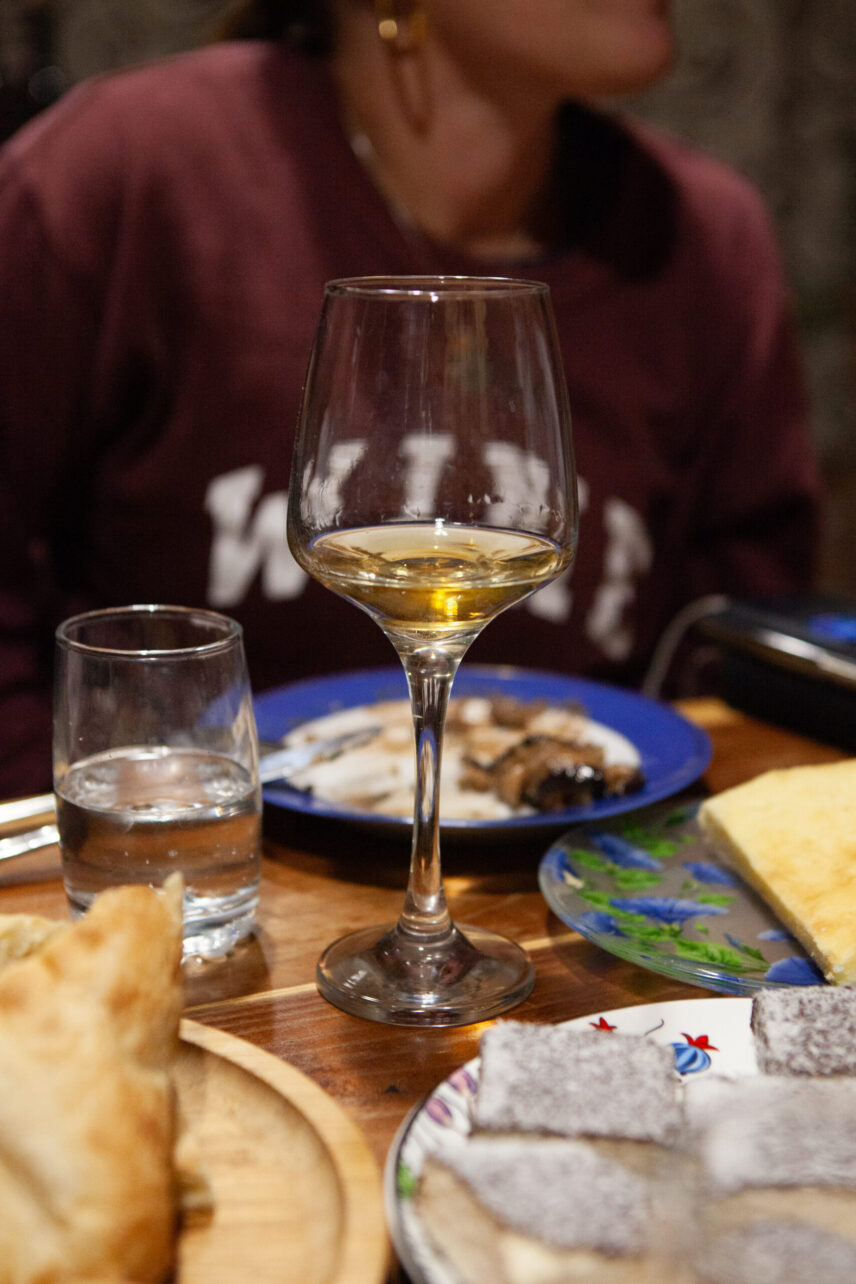
I spent the summers of 2018 and 2019 intensively studying the Georgian language and, eventually, culture through long-form interviews and long-term fieldwork, often filled with fraught communication. Helping with grape harvest in the western region of Racha, I frequently replaced the word q’uti (ყუთი), crate, with k’utkhe (კუთხე), corner; not to be confused with the number five, khuti (ხუთი). And, not to be even more jumbled with k’udurauli (კუდურაული), a rare grape that popped up amongst the vines.
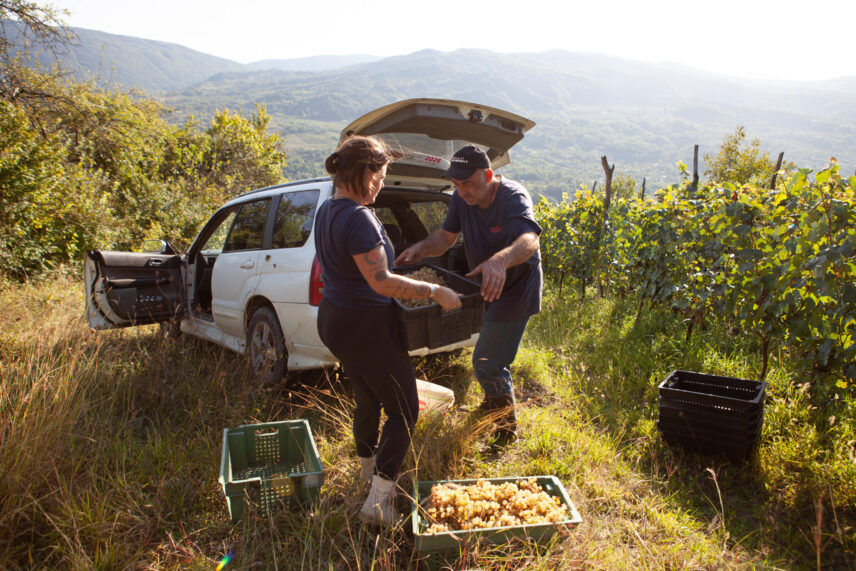
My project, then, which examines the politics of Georgian wine production, was also an exercise in communication. Working in wine, many of my interviews would take place in the vineyard. In my recordings, speech is often intermingled with human footsteps crunching on the grass, the wind whipping through the valley, or the rustling of hands touching vines. Over the three years I would spend conducting fieldwork in Georgia, I learned to embrace the noises of the natural environment and experience these interferences alongside my interlocutors who see the vineyard as a place of peacefulness, freedom, and quietness.
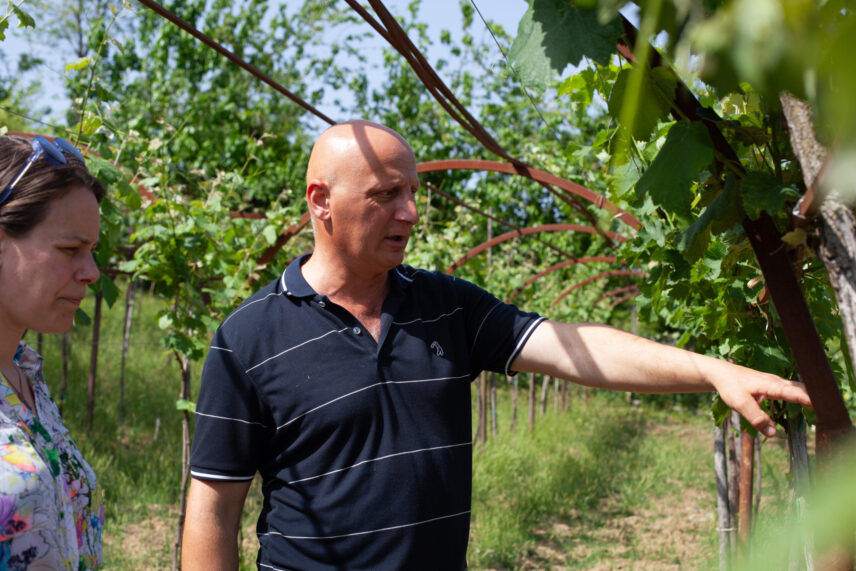
In Kakheti, Georgia’s predominant wine region, I helped harvest alongside a local brigade employed annually to pick grapes. The women I worked next to moved swiftly, pulling aside the grape leaves with their hands and quickly snipping grape bunches into baskets, calling “VEDRO VEDRO” (ვედრო), “bucket, bucket!” when theirs was full. What took them five minutes took me fifteen; khutmeti, not khuti. In the meantime, they would ask about American culture—What perfumes do we like? How is the food?—while telling me about how pruning is vital for grapevine health, or what their labor looked like during harvest seasons. The fuzziness of these communicative boundaries—shifting between current-day materiality and the ecological nuances of viticulture—is part and parcel of sharing knowledge. In understanding these harvesters’ livelihoods and existences, learning about pruning cannot be detached from discussing perfume and American food.
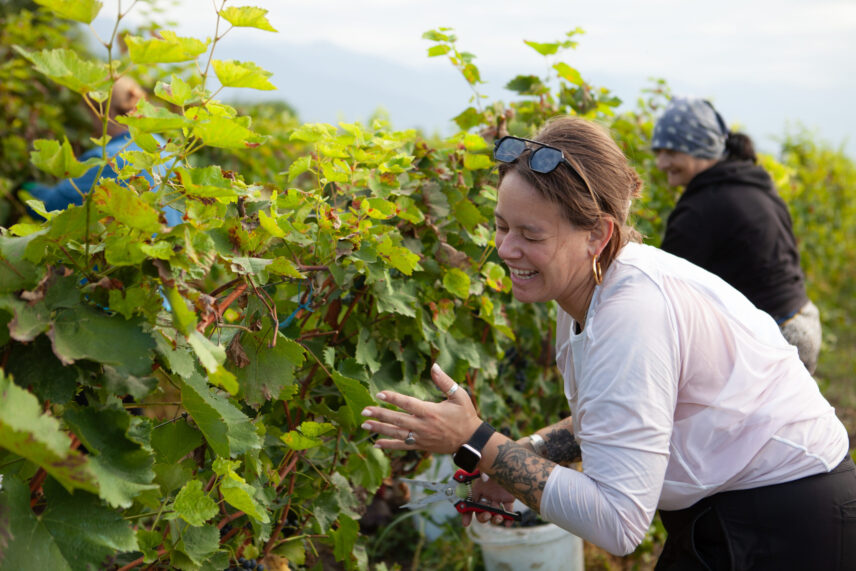
Fieldwork also took place in the marani—winery, or cellar, in Georgian—where noise signals wine being made: the generator’s hum, pop music blaring in the background, the voices calling to one another: “Move that hose here!” “Can you spray the press?” “Gacherdi!” (გაჩერდი) “STOP!” as pressed juice fills the stainless-steel tank. I help with various tasks, sorting grapes, hand-pressing, and pumping juice; I worry I might have misunderstood a command, possibly compromising the winemaking process. Yet, late into the night, when all the grapes have been pressed, and the baby wines are in their new vessels, bottles are opened, cheersing to a successful day of hard work.
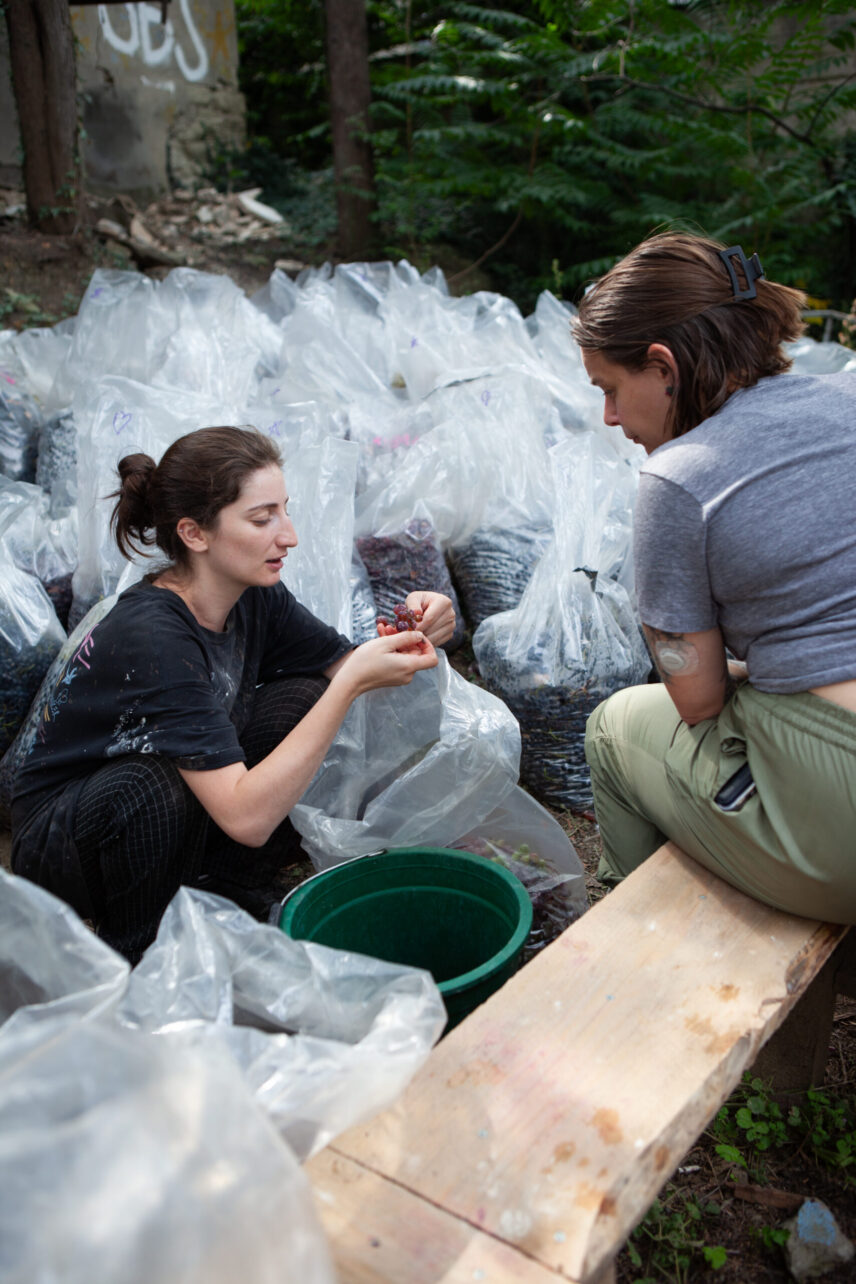
I conducted interviews in these same maranis, frequently accompanied by my interlocutors’ friends or my travel companions. The noise would echo off the stainless-steel vessels, the marani enclosing our voices and movements into a compact space. In many of these moments, I was tasked with translating, creating an even fuzzier boundary between me as the researcher, the interpreter, and the guest.
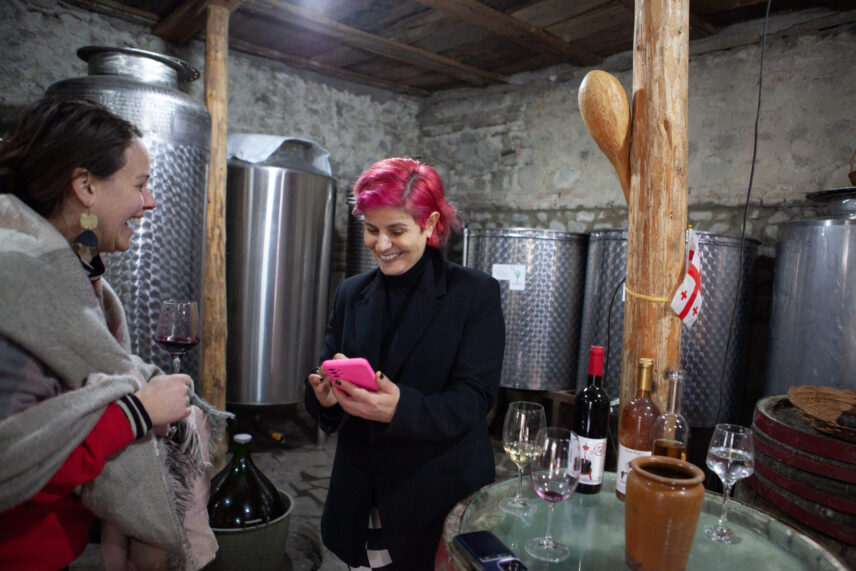
But the marani, and wine itself, is a social tool. The intimacy of the marani and the work that wine does allows for stories to penetrate the boundaries of communication. In the marani, there are signals of closeness: remnants of family histories, stories of struggles with winemaking, and the opportunity to share the fruit of their labor. The marani’s intimacy signals a decades-long or even centuries-long relationship with wine, a place to talk about career transitions, winemaking ideologies, takes on politics, and dreams for their wine businesses.
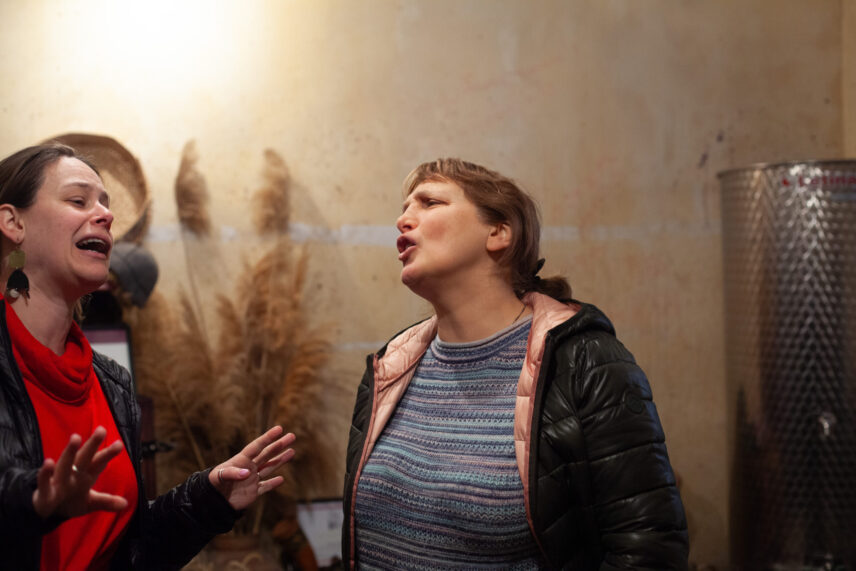
At other times, I recorded wine tastings I attended to concentrate on the experience. Often, these tastings embodied a cacophony of sounds: tableware clinking, the humdrum of personal conversations, phones ringing, and background music further stifling the ability to hear. As more wine is poured, voices are magnified, and in these moments, conversations often revolve around winemaking and Georgian identity, crucial topics for my research. I remember one wine festival in the winter of 2023. The room was packed with patrons; everyone had to squeeze past each other to reach the next table and taste wines. Conversation roared over the full-ensemble Georgian band playing on the stage. I ran into an American wine consultant and lamented to her: “It’s so loud and crowded in here!” “But we love to see it this way,” she responded, “It means people are enjoying the wine!” Noise signaled the success of the popularity of Georgian wine.
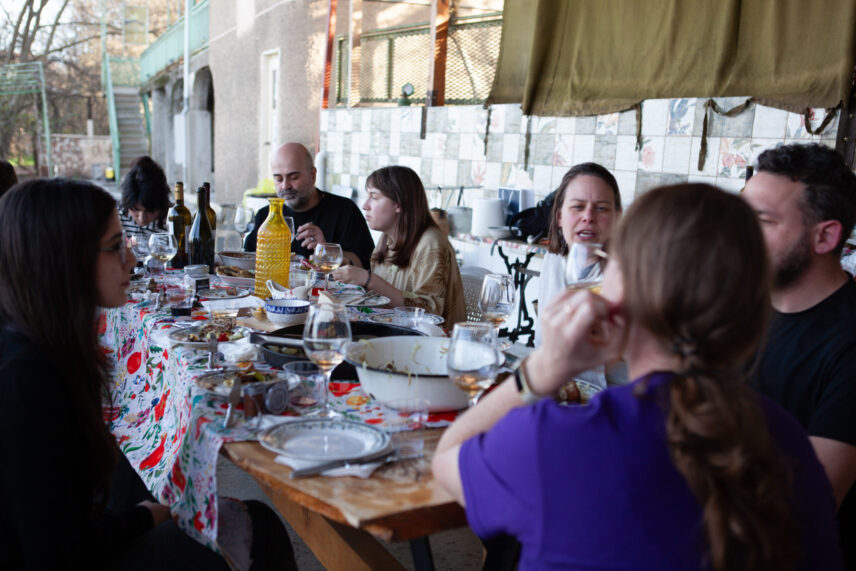
It’s hard to argue that wine doesn’t ameliorate the fuzziness of communicative boundaries. Wine festivals, tastings, and social events, especially in Georgia, while full of noise, are vehicles for social bonding and relationship building. As an anthropologist, I needed to come to terms with the uncertainty of noise in my linguistic abilities and field materials. Yet, as a human being, the noise signaled that I was communicating and creating certainty and meaning in my social relationships.
All images courtesy of Rowan Twine (https://rowantwine.com/).
Ariana Gunderson is the section contributing editor for the Society for the Anthropology of Food and Nutrition.

